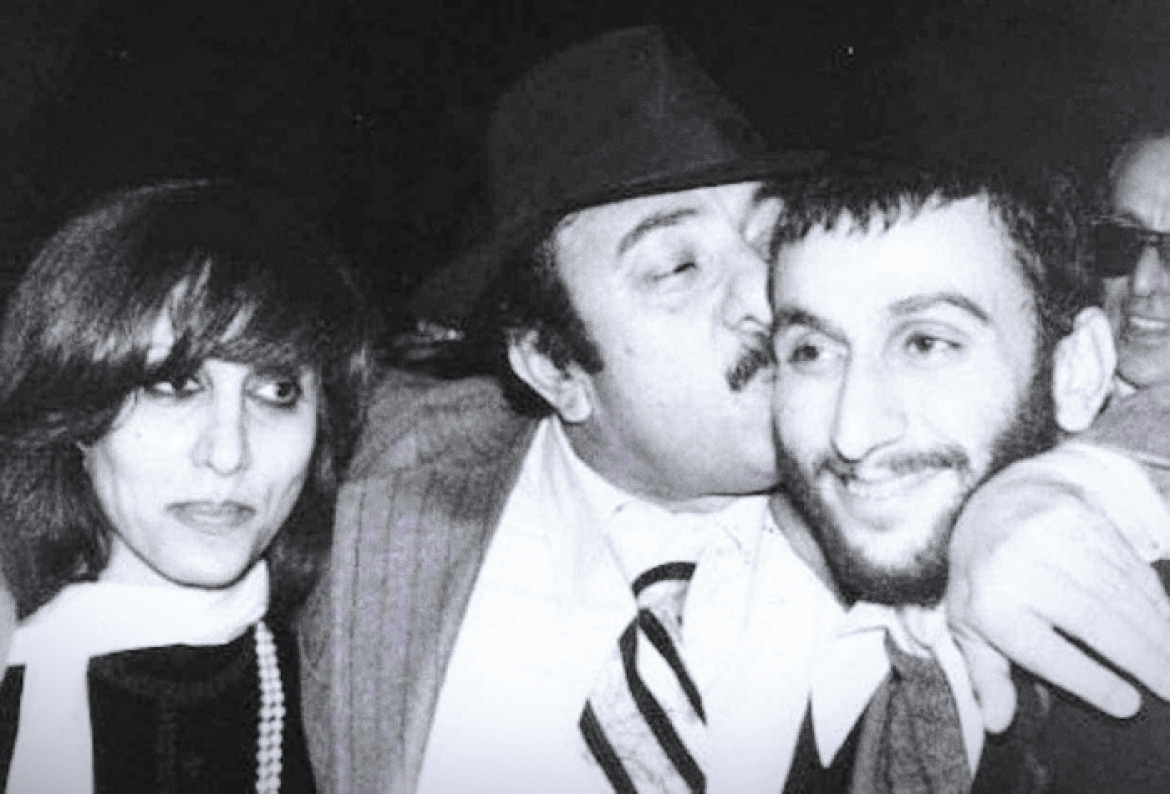Ziad departed ..
One phrase shook the strings of our hearts like the melody of "People Asked Me" or a silent sigh on a stage crowded with people, waiting for a wise mockery to come out of his mouth... or a sad melody that awakens in us a longing for a homeland we never lived in as we should have.
On the morning of Saturday, July 26, 2025, the final curtain fell on the life of Ziad Rahbani, the musician, playwright, writer, critic, and passionate lover of truth.
He passed away at the age of 69 after a struggle with illness, but his deeper struggle was with a bleeding homeland, a time that does not allow for honesty, and music that does not belong to the market.
Son of Fairuz and a descendant of the Rahbani school, but he chose to be "Ziad" not "Son of Assi", to pave a path not worshiped solely by family glory, but by rebellion, doubt, and big questions that do not tolerate small answers.
Since his early days, it seemed that there was something extraordinary inside him... His late father, the departed Assi Rahbani, consulted him on melodies since he was six.
And when he turned seventeen, he presented his first melody to his mother, giving birth to the immortal work: "People Asked Me", which he composed for Fairuz while his father was ill, as if translating the father's absence into a passing musical lament for generations.
Not widely known is that the melody was originally composed by Marwan Mahfouz, but Mansour Rahbani _his uncle_ decided to let Fairuz's voice carry this sorrow, saying: "For the first time we won't be together"... as if she is singing it to us now, and to her son.
Ziad's journey was not an artistic stroll; it was a war fought against superficiality, sectarianism, and molds.
He was a fierce critic of Lebanese society, mocking its customs, rebelling against traditional Rahbani theater, believing that art does not beautify reality but exposes it.
His plays "Sahriyya" (1973), "Nazl Al-Surur" (1974), "What About Tomorrow?" (1978), "An American Movie" (1980), "Something Failed" (1983) were all like burning fragments in the heart of a fragmented Lebanese reality... his artistic presence was as if he were the national conscience in a weary body.
His works were not mere political theater;
rather, they were a theatrical conscience, sarcastic, cutting, dismantling hollow discourses with laughter, and rebuilding awareness with clever phrases or rebukes on the tongue of a madman.
In "An American Movie", he chose a mental hospital to mirror society, as if the entire nation was afflicted with the madness of war.
"Ziad" was not just a writer or composer;
he was a voice, a throat resembling anger, nostalgia, and disappointment all at once... from "Feeling Tired" to "Show Me the Black Eyes", "Nothing at All", "Living Alone Without You", and "The Kiss", Ziad expressed the concerns of a generation, even the disappointments of an entire nation.
Even in jazz, which he blended with Eastern music, as in his album "Relative Calm", he left his unique mark, turning silence behind the note into music in itself.
In the 1990s, he played a role in "updating" Fairuz's voice, making her speak the language of the people, not just the language of poetry.
Albums like "How Are You", "Or What", "There Is Hope" were a new turning point in her career, but they also reflected Ziad: rebellion, deep melody, unadorned words.
His personal life was not easy, as Ziad lived through many conflicts: political, familial, and intellectual.
One of his most painful moments was;
a two-year estrangement from his mother Fairuz... a rift that ended with a silent phone call where she used her style: he called and remained silent, she said "Hello", and he replied "Finally".
Tenderness returned to its course, and the lady who sang "Once Upon a Time" returned to the embrace of her son who created a new artistic era for her.
Ziad was not materialistic, not chasing fame or wealth;
he was an organic intellectual, as many described him... treasuring time like a gem, placing clocks in every room... he slept no more than two hours a day; for him, time was an irreplaceable opportunity, stolen from his people by war, and he wanted to reclaim it through theater and music.
With the fall of the Soviet Union, the fading of Arab leftist influence, and the decline of hope, Ziad suffered a existential wound... as journalist Zaven Kouyoumjian said: "Ziad died for the first time at the end of the 1980s... everything that followed was shadows".
Those shadows remained radiant, but they were searching for a fallen dream and a torn homeland.
In his later years, he withdrew from the scene, suffered health and mental issues, battled depression, even contemplated retirement...
but he returned to life through music, signing a contract with the Beiteddine Festivals in 2018, to deliver an exceptional performance of his works and his family's works, amidst a large orchestra, for two hours of joy, sorrow, and beautiful madness.
Ziad was not an ordinary artist;
He was a state... a pure Lebanese state, stubborn, free, unclassified and unsummarized.
He carried Beirut in his heart like no one else... turning melody into a newspaper, theater into a platform for truth, song into a debate arena, and his voice into a constant alarm bell.
And today, as Ziad heads to the "Valley of Sleep", as his friend Obaido Pasha said, there is no death for truth, only the rest of a warrior exhausted by the dream.
Ziad may have departed, but his music does not leave, his theater does not fade, and his words endure:
"I am not an infidel, but hunger is an infidel, humiliation is an infidel, illness is an infidel, and silent people are infidels...".
Peace be upon the one who said it, lived it, and died without renouncing his art...

